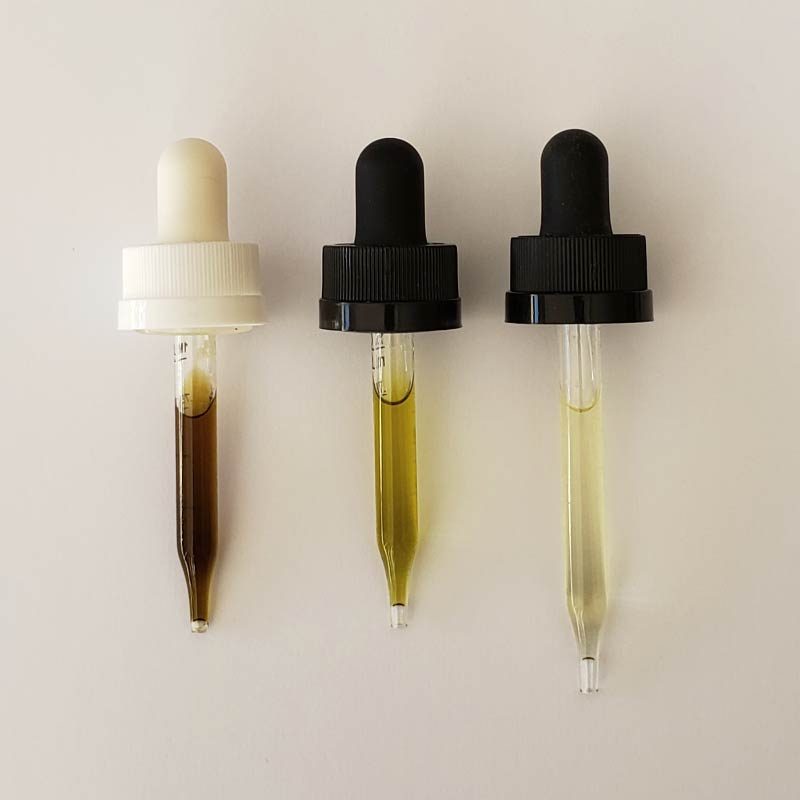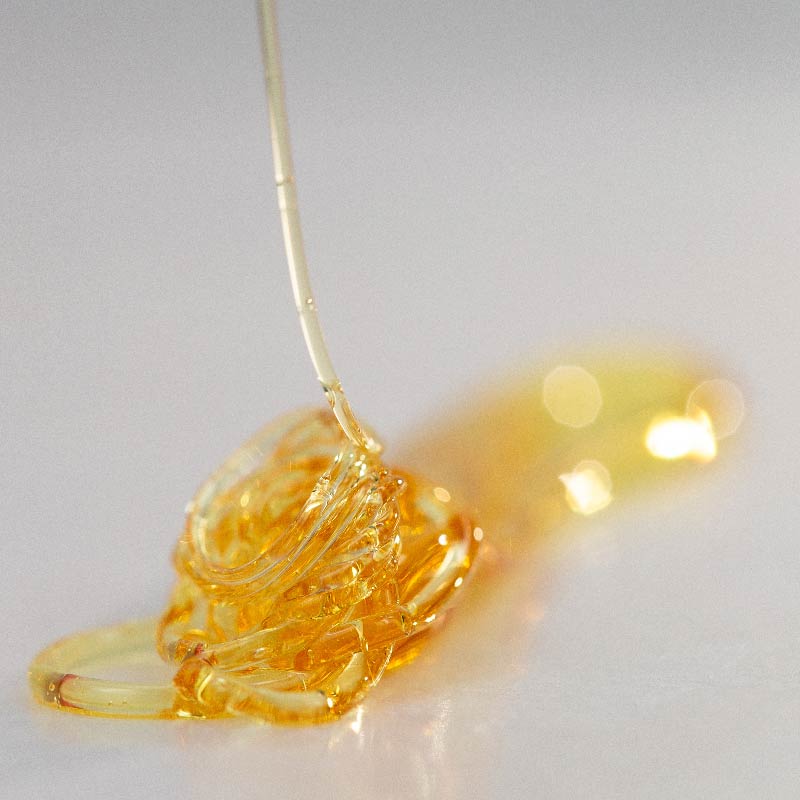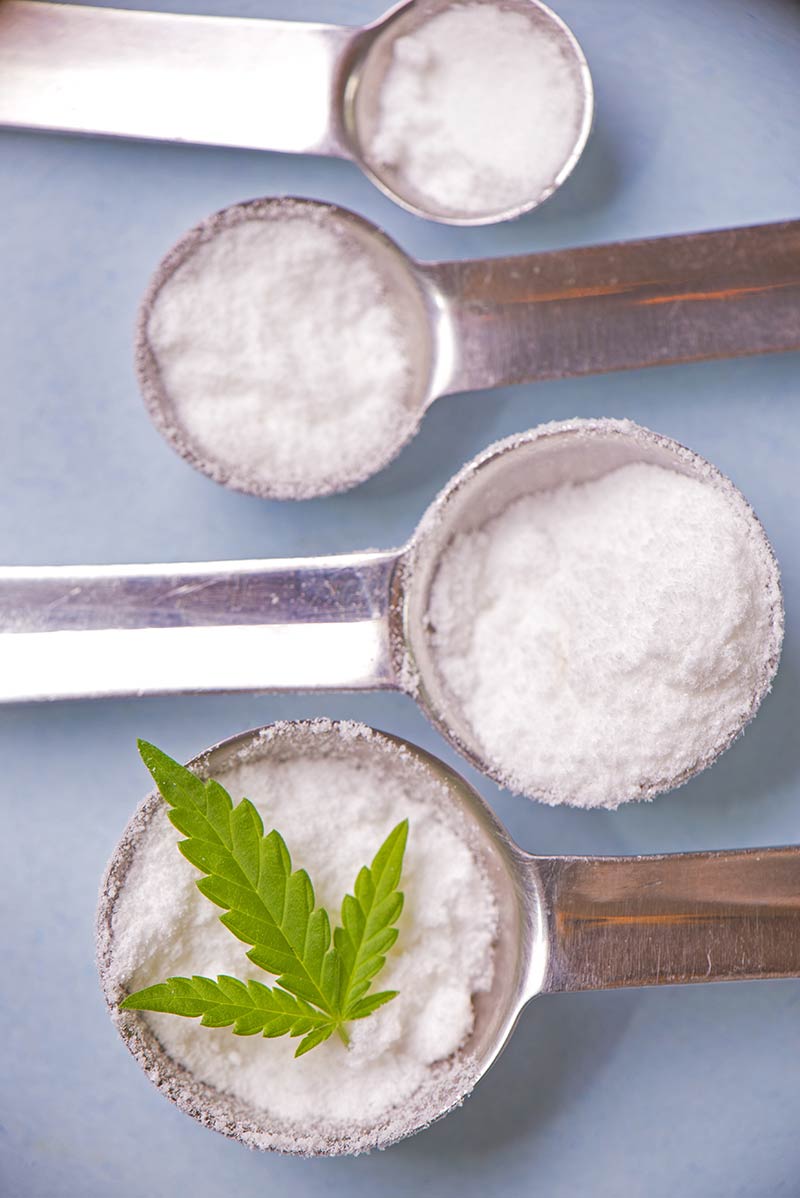Medically reviewed by Katherine Golden, RN
Written by Denise Rustning
Are you confused by all the different types of CBD? Don’t worry, we’ve all been there before!
All cannabinol (CBD) starts off as a compound in either hemp or cannabis plants. The plants undergo various processes to extract CBD, resulting in a range of CBD products. We break down the main types of CBD below, along with the pros and cons of each type.
Full Spectrum CBD: Wide-Ranging Hemp Benefits
Full spectrum CBD oil contains most of the of the hemp plant compounds, including terpenes, flavonoids, essential fatty acids, CBD, cannabigerol (CBG), and trace amounts of tetrahydrocannabinol (THC), staying below the 0.3% federal limit for CBD hemp products. The plant compounds work together to create a synergistic entourage effect that can boost the benefits of the CBD hemp plant. Full spectrum CBD oil is often a green color, reflecting the presence of those compounds. The color and flavor can even change between product batches due to variations in the plants.
- Pro: Full spectrum CBD provides all the power of the hemp plant, available in a variety of product types from topicals, tinctures and edibles to vape concentrates, as well as crumble that can be dabbed (smoked with a special rig). It’s less processed than other CBD concentrate types, as well.
- Con: Full spectrum CBD contains trace amounts of THC (under 0.3%). While it’s not enough THC to be intoxicating, the verdict is out on whether it’s enough to trigger a positive drug test result. Also, because full spectrum CBD retains the original plant compounds, it has a natural flavor that some people may find off-putting. Many manufacturers add fruit or mint flavoring to their full spectrum products to balance out the flavor.

Broad Spectrum CBD: A THC-Free Option Loaded with Hemp Power
Broad spectrum CBD is similar to full spectrum CBD, except that the product goes through additional refinement to remove all THC. It’s important to note that the terms “full spectrum” and “broad spectrum” sometimes get confused, even by product manufacturers and marketers. Furthermore, past research has shown that product labeling can sometimes be inaccurate. Be sure to check the manufacturer’s test results on the product Certificate of Analysis (COA) to confirm this!
- Pro: Broad spectrum CBD maintains most of the plant benefits while eliminating THC, and can be used in the same ways that full spectrum is used. This may be an appealing option for people who want or need to avoid THC due to workplace drug testing; however, given the confusion around labeling, a safer option would be CBD isolate, which we discuss below.
- Con: Removing trace amounts of THC requires additional refinement which also pulls with it additional minor cannabinoids and lessens the CBD content in the process, moving CBD further away from its full plant form. Also, given the concerns around inaccurate labeling and testing, broad spectrum CBD is not the ideal choice for athletes and professionals who are subject to drug testing.
Distillate CBD: A Powerful Hemp Concentrate
Distillate CBD is a concentrate containing between 80% – 90% CBD. In order to make distillate CBD, additional steps take place to filter out impurities and remove most of the non-cannabinoid compounds, including terpenes, flavonoids and essential fatty acids. This process results in a product with a honey-like consistency that is odorless and tasteless.
- Pro: Distillate CBD retains the plant cannabinoids, including minor cannabinoids and THC (less than 0.3%). Distillate is often used in vape products, edibles and topical products given its high concentration, purity and lack of odor or taste. This results in a more consistent product.
- Con: Distillate CBD undergoes additional post-processing extraction. Also, it provides a narrower range of plant-based benefits when compared to full spectrum products.

Isolate CBD: Pure Cannabidiol
Isolate CBD is the purest form of CBD available, consisting of approximately 99% CBD in white powder form. Unlike distillate, CBD isolate doesn’t contain any other cannabinoids or plant compounds. This makes it a favorite among people, such as professional athletes, who cannot risk ingesting even trace amounts of THC. Products made with isolate CBD are often labeled as “No THC,” though you’d want to check the Certificate of Analysis (COA) test results to ensure this is true.
Our Leaf411 nurses recommend using isolate CBD consumer products that are designed to provide consistent, pre-dosed administration, and which are manufactured by reputable companies, such as our member partners. While isolate CBD is also sold as bulk powder, we have concerns about product quality and dosing.
- Pro: Isolate CBD does not contain any THC, making it the safest bet for people who cannot risk positive drug tests. Manufacturers use isolate CBD that they mix into their drink products, foods (edibles), topical products or tinctures, while isolate CBD wax can be dabbed but should be used with caution.
- Con: The drawbacks are similar to those we discussed with distillate CBD. Isolate CBD’s purity means that many other beneficial plant compounds have been stripped out.

How to Choose the Best Type of CBD
We wish there was an easy cheat sheet or quiz for finding the best type of CBD. Beyond a few basic considerations, though, it can be a process of trial and error.
We encourage you to continue your journey into finding reliable, accurate CBD information from reputable sources. One of our favorite sources is ProjectCBD. You can find more CBD 101 information that we stand behind at this link.
Our Leaf411 cannabis-trained nurses are happy to provide guidance on the different types of CBD and how they might help address your specific needs. Call our free, anonymous hotline at 844-LEAF411 (844-532-3411) for medically-sound answers to your cannabis and hemp questions.

